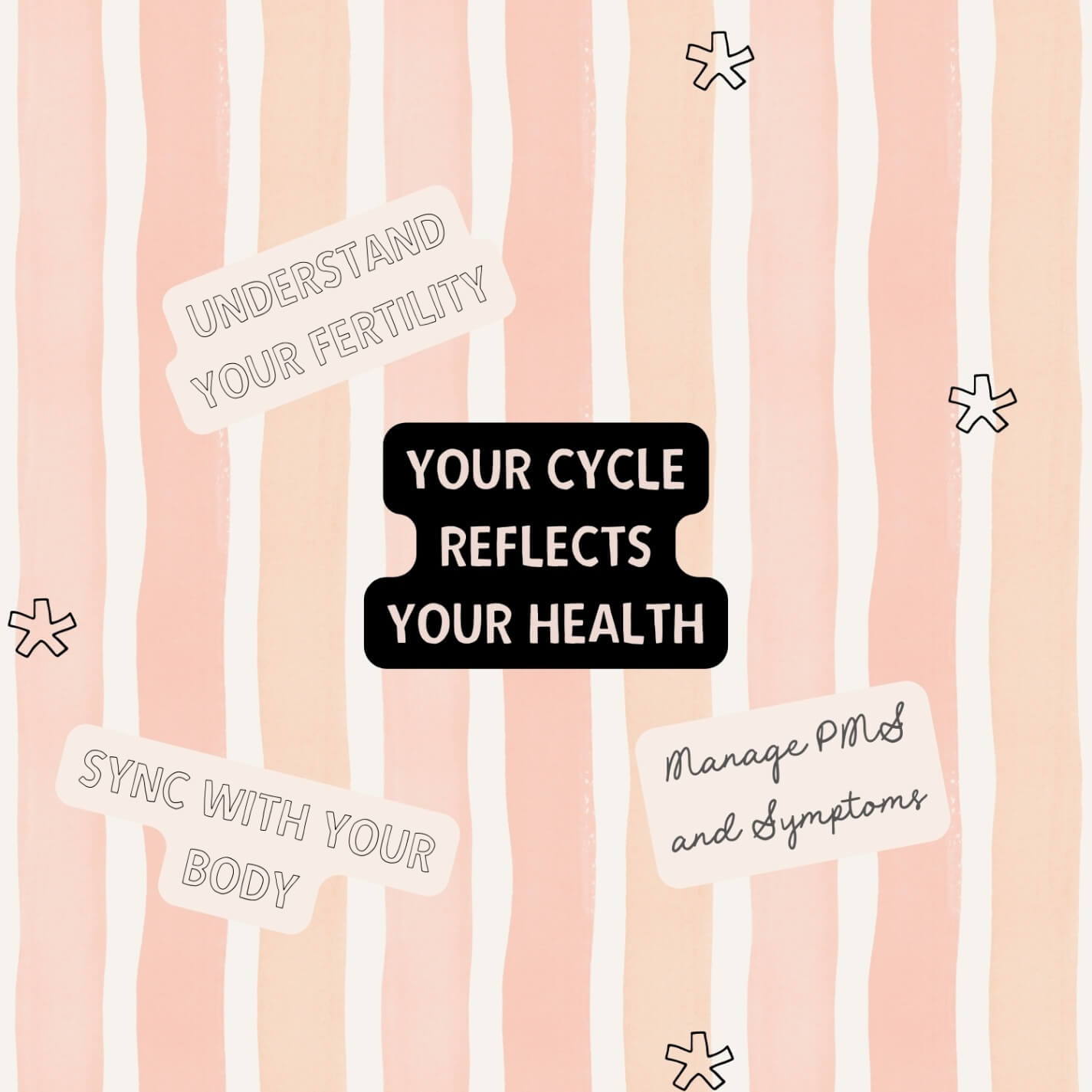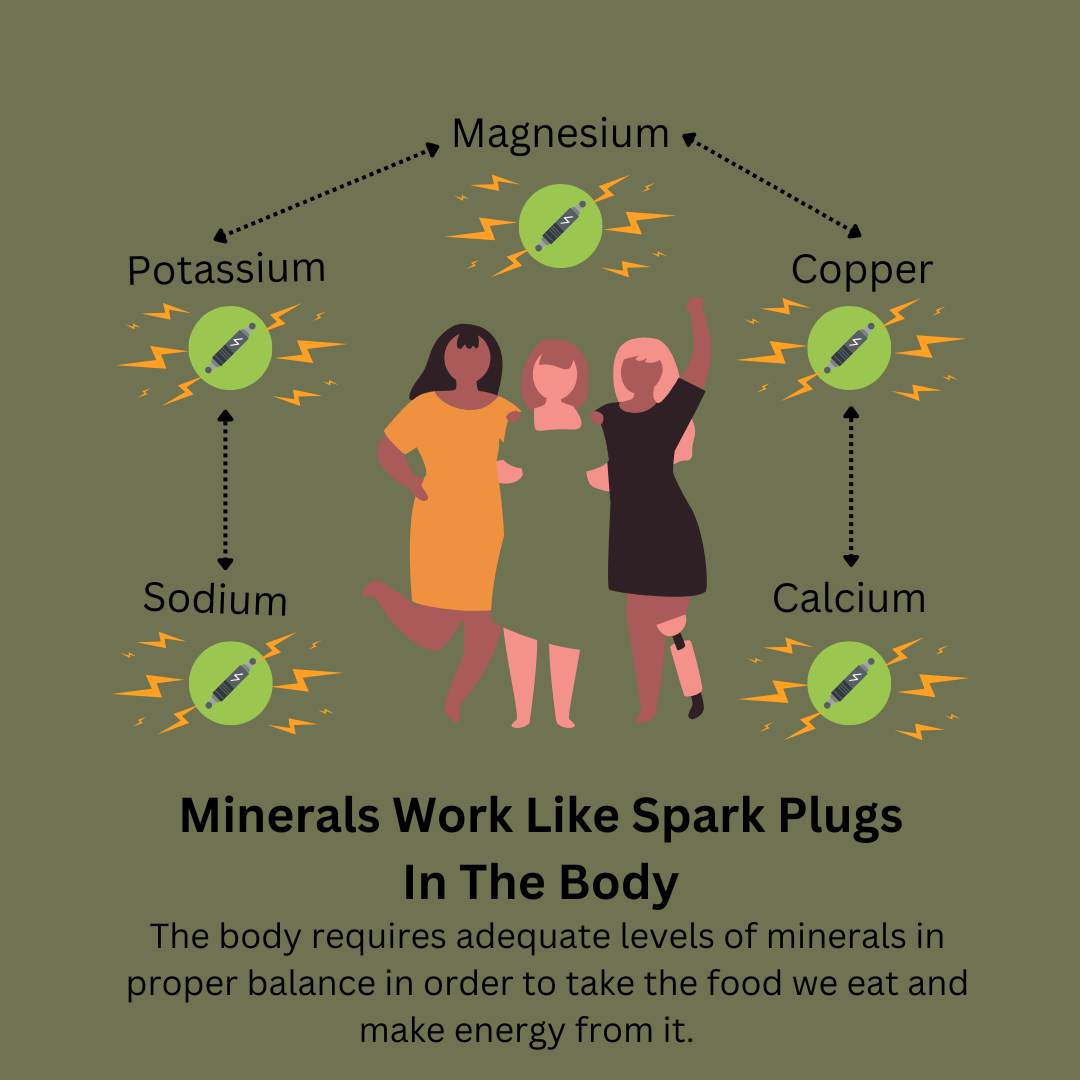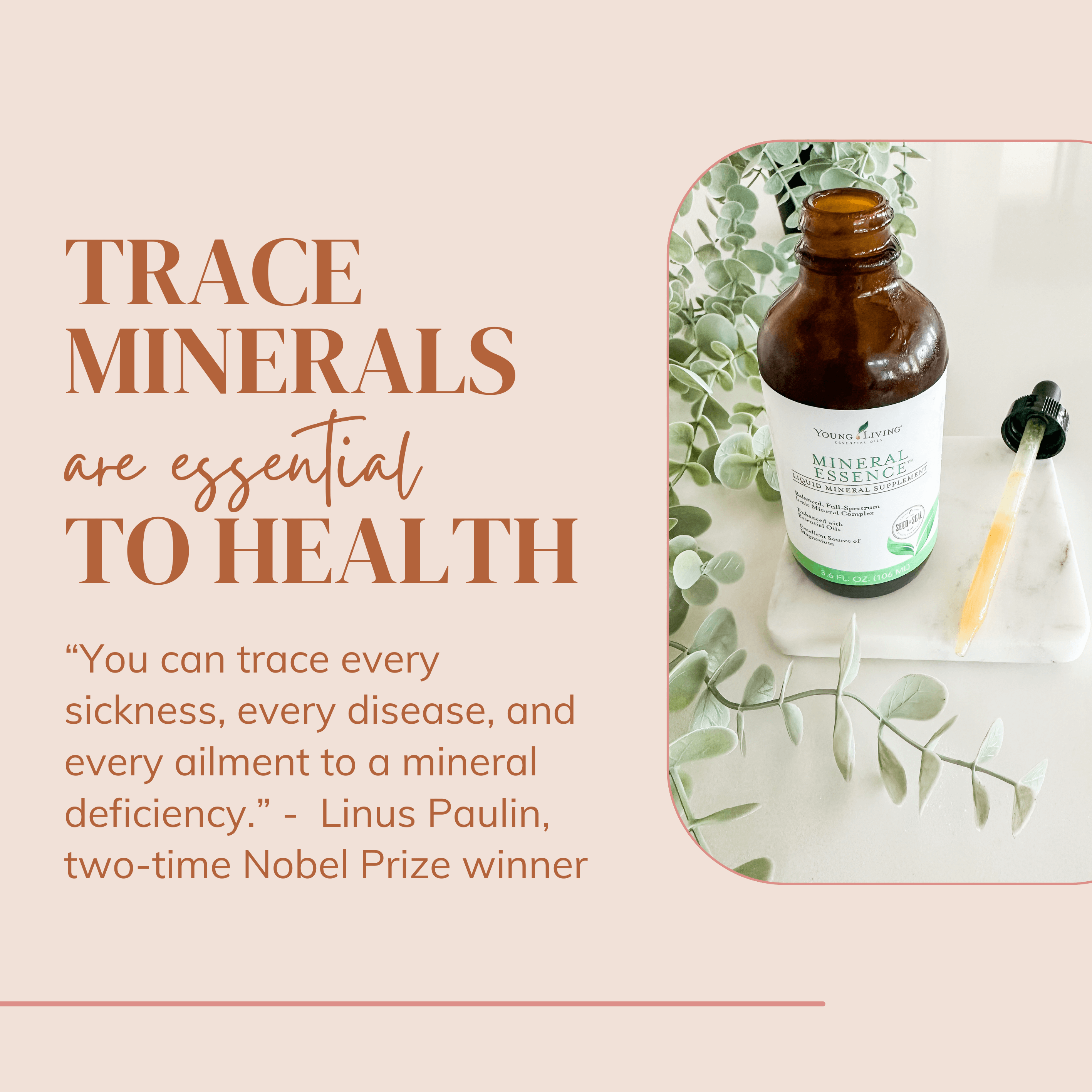
Ready for the biggest myth of all?! PMS and cramping are normal, and there’s nothing you can do about it.
WRONG.
While those conditions are incredibly common, they are NOT normal, and 50 years of doctors slapping us on birth control as the answer has created another whole host of issues.
Ready for some good news?!
We have information and tools to help get things back under control.
Your menstrual cycle is like a built-in health report, giving you clues about your body’s overall well-being.
It’s not just about tracking your period—your cycle reflects everything from your hormonal balance to how stress, diet, and lifestyle choices are affecting you. Paying attention to it can help you feel more in tune with your body as you take charge of your health naturally. If you are interested in learning more, I have a class for you and you can choose how you want to participate. In this class, we'll ask questions, listen to our bodies, and discover ways we can lean into to our hormonal balance with practical, daily practices.
Ways to participate: text or email or Live Zoom
If you would like a text version of this class, you will get a slightly shorter version but still amazing information. You need to text the word CYCLE to (417) 553-1500. The class will start arriving in text form and you will get a new text every 5 minutes over the course of an hour and a half.
If you would prefer a slightly more in-depth version, I can send it to you via email where you will get 1 email a day for 6 days.
Click here for the email version.
If you want to join a Live Zoom class where my friend Courtney will be teaching February 27th at 8pmCT, Click Here
XO,
Melinda Haak

Signs Your Body Needs Minerals: 

Chronic fatigue
Always feeling "so stressed out."
Frequent urination/excessive thirst
Muscle weakness, tightness, or cramping
Irregular heart beat
Adrenal dysfunction
If you are struggling with stress and chronic fatigue, your body needs minerals.
As we head into a higher-stress season, your body needs some extra TLC. If you are not already taking a mineral supplement, now is the time to start. Why? Minerals are rapidly depleted during times of stress. But here's the catch, minerals are needed to support the stress response. Add high intensity workouts, lack of sleep, and lack of sunshine on top of it, and it's easy to see why so many women struggle with chronic fatigue, chronic illness, adrenal issues, and thyroid problems.
Basically, minerals are your body's "spark plugs" -- they are required to activate the more than 20,000 enzyme reactions in your body.
When minerals are depleted, your body doesn't have the resources it needs to create energy at a cellular level and support enzyme function. Our mitochondria are rich in minerals, and minerals are the catalyst for energy creation within our cells.
So where have all of the minerals gone?
1. Minerals are largely missing from our food supply due to decades of farming where land hasn't been given an opportunity to rest, combined with the effects of pesticides, herbicides, and air and water pollution. Our soil has slowly been drained of its vital elements. Minerals cannot be created by the body. We must consume them from our diet.
2. Most people aren't absorbing the minerals they are eating in their food due to poor gut health.
3. Minerals need to be fat soluble vitamins to be properly absorbed. The low-fat movement scared people away from foods rich in fat soluble vitamins like meats, organ meats, eggs, and grass-fed butter. If you have bone density issues or tooth decay/cavities/root canals, you likely have a deficiency in fat soluble vitamins.
4. During pregnancy and breastfeeding, minerals are depleted. Without intentionality, the body can quickly become depleted.
5. Table salt is highly processed and removes trace minerals, whereas unprocessed sea salt contains all the trace minerals along with the sodium.
If you're struggling with signs and symptoms of mineral depletion, there are many ways to support your body with minerals.
1. My favorite way is just using a simple unprocessed sea salt when cooking like this one https://a.co/d/fzFyYKj.. or this one https://a.co/d/fzFyYKj.. You can also drink an adrenal cocktail which has Vitamin C, potassium, trace minerals.
2. If you have had a really stressful season or if you are like me and had back-to-back babies, I would add Mineral drops to your filtered water.
Here are two of my favorites:
Mineral Essence https://m.lfstps.com/ZmV4/CHw3X
Trace Minerals: https://a.co/d/3DBSali
3. Eat fruits and veggies in season and from local sources to reduce mineral depletion.
4. Incorporate grass-fed beef and organ meats into your diet, which are rich in minerals and fat soluble vitamins (needed for mineral absorption).
5. Drink an adrenal cocktail (I'll post a recipe below).
6. Get outside! Sun exposure will increase your Vitamin D, which is necessary for mineral absorption.
Do you supplement with minerals? Has it made a difference? If you haven't intentionally added minerals to your daily regiment, give it a shot for 90 days and I'd love to hear how they make you feel!

Blessings!
Melinda Haak
Adrenal Cocktail Recipe:
Ingredients:
- 1/2 cup orange juice (for vitamin C)
- 1/4 cup coconut water
- 2 Tablespoons coconut cream or milk
- 1/4 tsp cream of tartar (for potassium)
- 1/4 tsp unprocessed sea salt (sodium + trace minerals)
Directions: Mix, and sip! Drink midmorning to support cortisol rhythms.

Is protein YOUR missing piece? Research shows most women aren't eating enough. When working with clients, I found many women were eating 50 grams a day OR LESS! This isn't ANYWHERE NEAR ENOUGH!
Why is protein important?
1. Protein is broken down into amino acids, which are the building blocks for organs, hormones, enzymes, and even antibodies.
2. Protein is necessary to build and rebuild muscle. If you want to add or even maintaintle muscle mass, you need to eat sufficient protein.
3. Protein has a stabilizing effect on blood sugar, especially when consumed at breakfast. It reduces jitteriness, agitation, and mood swings, and improves sleep.
4. It helps with feeling full and satisfied.
5. It prevents muscle wasting. Higher protein diets can benefit both older adults and people who suffer from chronic illness who are susceptible to muscle wasting.
Even with a moderately low protein intake, your body will start showing subtle signs that it isn't getting enough. Here are the major ones:
1. You get sick regularly. Lack of sufficient protein takes its toll on your immune system. Studies show even marginally low protein intake may impair immune function and your body's ability to fight infections like colds and flu.
2. Hangry/shaky between meals. Protein helps stabilize blood sugar by blunting the absorption of carbohydrates. This leads to beneficial changes in metabolic, cardiovascular and inflammatory markers. It also improves satiety, which means you feel less hungry and cranky in between meals.
3. Thinning hair and brittle nails. Hair, skin, and nails are largely made of protein, specifically collagen and keratin. If you lack these proteins, you may start noticing dry, flay skin, ridges on your fingernails, and thinning hair. This product has also helped tremendously with my hair, skin and nails: https://m.lfstps.com/lv213/CHw3X
Sulfer-Containing amino acids influence our ability to detox, and combat free radicals and DNA damage.
4. Exhaustion or lasting soreness after exercise. Slow recovery and muscle repair after exercise is a key sign of inadequate protein intake. Minor injuries or pain that would otherwise resolve quickly can stick around for much longer if you're not getting enough protein.
5. Weakness or chronic fatigue. If you feel weak, lethargic, or tired all the time, this is a classic sign of poor of low protein intake. It's usually coupled with an inability to stay warm.
6. Low Libido. While often normalized for women, a loss of libido can be an indication your body is deficient in protein! Low protein intake causes low testosterone levels, which causes a decline in sexual function, muscle tissue, and red blood cells. Women...it's time to eat!
So how do you make sure you're getting enough?
Include high quality protein at each meal and as a snack when possible. Focus on foods high in bioavailable protein, essential amino acids, and sulfur-containing amino acids. These foods are also rich in fat-soluable vitamins (necessary for bone health), B Vitamins, and heme iron. Heme iron is the form of iron that is digestible to the human body. Lastly, fat soluble itamins help minerals deposit into bones and teeth! Poor bone density and reoccurring dental issues (root canals, cavities, etc) are a sign of too low fat soluble vitamins and low quality protein intake.
- pasture raised eggs
- chicken
- beef
- whole milk
- collagen (Young Living, Perfect Supplements, PaleoValley, Garden of Life) are some of my favorite sources
- shrimp
- salmon'
- bone broth
- duck
- turkey
- yogurt
- cheese
- jerky (I love PaleoValley)
- lamb
- sausage
- gelatin gummies
Example Protein in a Day
Breakfast
- 2 eggs = 12g
- 1 scoop collage = 6 g
- Lunch
- 4 oz salmon = 24g
- Dinner
- 4 oz ground beef = 20g
- Snacks
- 2 cheese sticks = 10g
- 1 cup bone broth = 10g
- 1 cup yogurt = 24g
- Do you struggle to get enough protein? What are your favorite sources?
I hope this was helpful! If you want a list of good quality protein sources or even a handful of quick breakfast ideas, let me know. I'll send them over!- Blessings (and I don't know why it got stuck on the bullet points. Obviously very human here. LOL
- Melinda Haak
Have you ever struggled with unexplained weight gain, brain fog, low energy, and/or lower belly bloat?
Until about the age of 45, I had zero issues shedding the extra 10 pounds I always gained over the winter months. But my first summer past 45, I could not no matter how hard I tried.
Beginning in your late 30's, 40's, & 50's, there is a progressive loss of ovulation, and a DECLINE in progesterone and estrogen. These fluctuations influence our insulin, and so many of us struggle with excessive cortisol levels.
This leads to the unexplained fat deposition (typically in the mid-section) & weight gain occurs WITHOUT any changes to your typical diet or activity level. But there are things that can be done to support these hormonal shifts, prevent weight gain, and even lose fat. However, diet and exercise MUST be approached differently than it was in your 20's and early 30's.
Adjustments we need to make:
1. No longer skipping meals. Instead eating 3 well rounded ones spread apart by 3.5-4 hours. Aim for 120-140 grams of protein in a day. If I snack, it's usually a Ningxia Red packet and yogurt or some other protein like Beef Sticks.
2. Begin each day with 20-40g protein and eat within 60 minutes of waking.
3. Rather than fasting in the morning, fast 3 hours before bed.
4. Prioritize sleep by getting at least 7-8 hours. See previous blog post for tips if your struggle with sleep.
5. Swap the HIIT (high intensity interval training) for weight training minimum of 3x a week.
6. Swap the long distance running to walking 8,000-10,000 steps a day on an incline.
7. Prioritize relationships whether that is time with family of friends. We are meant to live in community.
Other things I personally have used to help support my hormones as well as support a healthy weight are Progessence Plus from Young Living and FemiGen or EndoGize. I'll put a link here that explains HOW they are supportive. https://m.lfstps.com/44ao5/CHw3X My husband has joked for the last 10 years that if we were ever stranded on a deserted island, I had better have my PP (Progessence Plus) with me! I'm definitely very moody without it and keep it right next to my toothbrush so I don't forget to use it morning and night. What I didn't know until a couple of years ago though, is that our bodies CANNOT make healthy hormones if we are not getting enough protein in a day. When I started really focusing on getting adequate protein this past year, I noticed my moods were better, my digestion was better, sleep was better, and my weight stabilized.
I hope these little insights are helpful and encouraging to you! We're all learning together!
Blessings!
Melinda Haak


